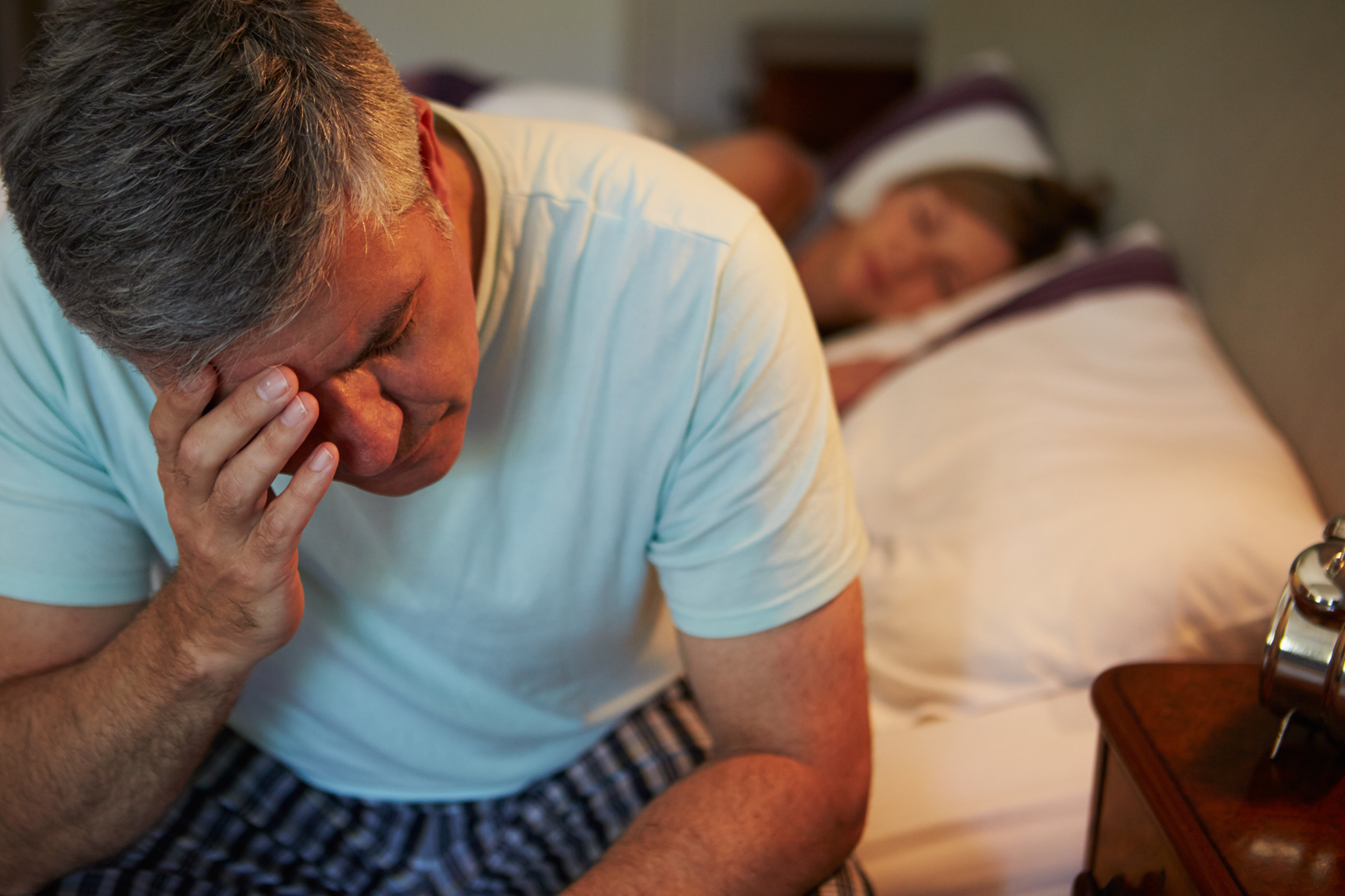The Importance of Sleep
Turns out, sleep is crucial for our overall health!

It’s after midnight and you’ve been trying to sleep for hours but just can’t seem to drift off. When you finally do, your partner starts snoring so loudly that you keep waking up. Restless nights like these are all too familiar for many boomers who find it increasingly difficult to get a good night’s sleep.
Although each individual is different, boomers ages 64 or younger need an average of seven to nine hours of sleep each night. Those 65 or older need seven to eight hours, according to the National Sleep Foundation.
THE NECESSITY OF SLEEP
“We spend a third of our lives sleeping, so it must be pretty important,” says Dr. Samuel Taylor Jr., medical director of the Virginia Commonwealth University Center for Sleep Medicine.
Insufficient or poor quality sleep is associated with a number of health issues, including diabetes, heart attacks, stroke, obesity and depression, according to the Centers for Disease Control and Prevention.
It can also affect your cognitive function, mood, metabolism and hormones, and some processes such as memory consolidation, which happens only during Rapid Eye Movement (REM) sleep “when important memories are stored and others are pruned away,” says Taylor.
If you snore, have trouble falling asleep or staying asleep, wake up feeling tired, have morning headaches, fall asleep at inappropriate times or have uncontrollable hypertension, you may have a sleeping disorder, according to the VCU sleep center. Taylor suggests seeing your primary care doctor first and then seeing a specialist if necessary to delve into details about your sleep experience.
Sleep physicians can evaluate your sleep and develop an individual treatment plan to help you get quality rest. You may need to keep a sleep diary, use a home testing device or be evaluated overnight in a special “sleep room,” where your brain waves, heart activity, blood oxygen levels, breathing and muscle activity can be monitored while you sleep.
CHRONIC INSOMNIA AND SLEEP APNEA
Chronic Insomnia, three months or more of having difficulty falling asleep and staying asleep, is the No. 1 sleeping disorder that affects boomers, according to Taylor.
Many things, including stress, depression and medication, can cause it. Sometimes work issues or other stressors are short-lived and the problem resolves itself. Other times medication might be necessary, he said.
Obstructive Sleep Apnea, often associated with snoring, is the second most common sleeping disorder that affects boomers, according to Taylor. When people with this condition lie down, their upper airway becomes partially or completely blocked causing them to wake up to breathe frequently during the night. It can result from weight gain or from age-related loss of muscle tone in the throat.
CPAP (Continuous Positive Airway Pressure) has been the standard treatment for Obstructive Sleep Apnea. Patients wear a mask connected by a tube to a blower that provides continuous airflow to keep the airway open during sleep.
However, alternatively, a mouth guard can be fitted by a dentist to push the lower jaw forward at night to keep the airway open. According to Richmond dentist Erika Mason, the initial fitting takes one or two appointments with follow-up visits every month for adjustments as needed.
Other people find relief by losing weight, sleeping on their side and avoiding alcohol and sleep medications. A very small percentage of people may need surgery to widen their restricted airway.
CHANGING CYCLES
As boomers age, their circadian rhythms – physical, mental and behavioral changes that follow a 24-hour cycle, in response to light and dark – may also begin to shift to earlier times, according to Taylor. Beginning in their 50s or 60s, some people begin going to sleep earlier and getting up earlier, he explained.
If necessary, this Advanced Sleep Phase Disorder can be treated with lifestyle changes, melatonin or light therapy, Taylor said.
Although it occurs less often, Restless Leg Syndrome (RLS) is also more common among older people. The urge to move arms and legs due to an uncomfortable feeling tends to occur at night and makes sleeping difficult. It may be related to iron deficiencies and can be treated with medications, Taylor said.
As people age they also spend more time in light sleep and less time in deep sleep and REM sleep. How that plays out in terms of memory and cognitive function is still debatable, he said.
For those who enjoy napping, he urged caution.
“Naps contribute to your overall sleep time. Don’t take a nap too late in the day or nap for too long.” He said you should nap for at least 20 to 30 minutes but no longer than an hour and a half to wake up feeling aware and alert. Too little or too much sleep may make you feel groggy.
SLEEPING TIPS FOR BOOMERS
Compiled and adapted from the National Sleep Foundation and the American Association of Sleep Technologists websites:
1. Keep a consistent sleeping and waking schedule.
2. Keep your bedroom cool; set the thermostat between 60 and 67 degrees.
3. Get regular aerobic exercise.
4. Limit caffeine, alcohol and nicotine before bedtime.
5. Boost your melatonin levels, the hormone that makes you sleepy, by dimming lights and turning off computers, smart phones and televisions one hour before bedtime. Artificial lights can interfere with melatonin production.
6. Blue wavelength light emitted by smart phones and other electronic devices can make you feel alert. Wear amber sunglasses to filter that light if you need to check your emails before you go to sleep.
7. Check your medications to see if any are interfering with your sleep and discuss alternatives with your doctor.
8. If stress and worries are keeping you awake, try relaxation exercises, make daily to-do lists, read a relaxing book or talk with a friend or therapist about your concerns.
9. Relax and let sleep happen.


